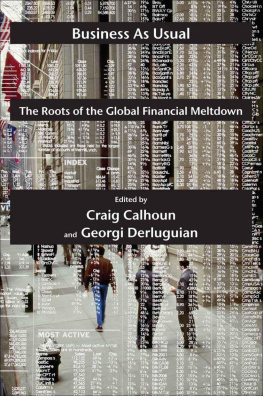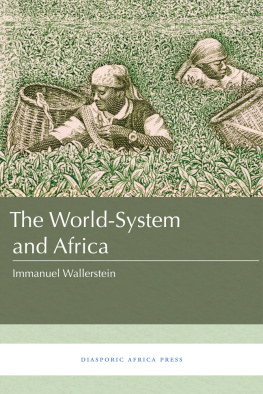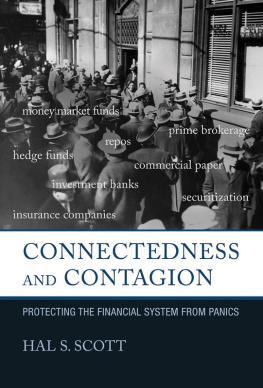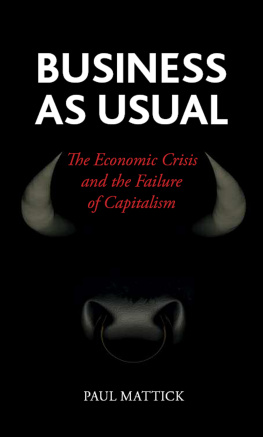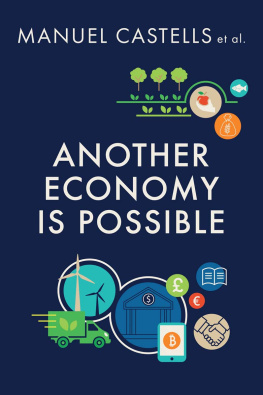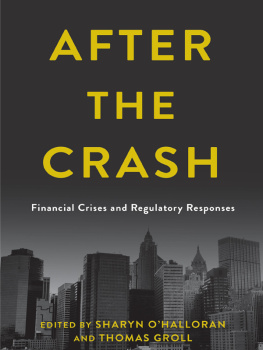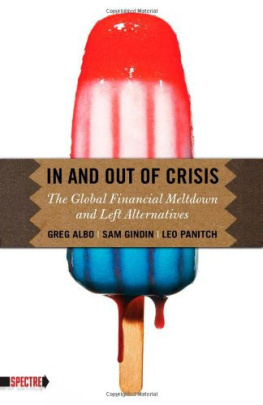BUSINESS AS USUAL
POSSIBLE FUTURES SERIES
Series Editor: Craig Calhoun
In 2008, the World Public Forum convened a group of researchers and statesmen in Vienna to take stock of major global challenges. The magnitude of the global financial crisis was only just becoming clear, but the neoliberalism and market fundamentalism of the post-Cold War years had already taken a toll of their own.
Austrian Prime Minister Alfred Gusenbauer opened the meeting with a call to make sure the urgent attention the financial crisis demanded was not just short-term and superficial but included consideration of deeper geopolitical issues and governance challenges facing the global community.
In this spirit, several of the researchers present envisioned a project to bring together the analyses of leading scholars from a range of different countries, assessing not only the financial crisis but shifts in relations among major powers, trends in political economy, and the possible futures these opened. The group sought insight into emerging issues; it did not indulge the fantasy that the future could be predicted in detail.
The World Public Forum, created to facilitate a dialogue of civilizations rather than a clash, saw value in bringing high quality research to bear on public issues and possible futures. It provided financial support to the project including opportunities for many of the researchers to gather at its annual meetings on the island of Rhodes. This initial support was crucial to inaugurating the present important series of books.
VOLUME I
Business as Usual: The Roots of the Global Financial Meltdown
Edited by Craig Calhoun and Georgi Derluguian
VOLUME II
The Deepening Crisis: Governance Challenges after Neoliberalism
Edited by Craig Calhoun and Georgi Derluguian
VOLUME III
Aftermath: A New Global Economic Order?
Edited by Craig Calhoun and Georgi Derluguian
ALSO IN THE POSSIBLE FUTURES SERIES
Russia: The Challenges of Transformation
Edited by Piotr Dutkiewicz and Dmitri Trenin
Business as Usual
The Roots of the Global Financial Meltdown
Edited by Craig Calhoun and Georgi Derluguian

NEW YORK UNIVERSITY PRESS
New York and London
www.nyupress.org
2011 by Social Science Research Council
All rights reserved
Text Design: Debra Yoo
Library of Congress Cataloging-in-Publication Data
Business as usual : the roots of the global financial meltdown / edited by Craig
Calhoun and Georgi Derluguian.
p. cm. -- (Possible futures series ; v. 1)
A co-publication with the Social Science Research Council.
Includes bibliographical references and index.
ISBN 978-0-8147-7277-5 (cl : alk. paper) -- ISBN 978-0-8147-7278-2 (pb : alk. paper) -- ISBN 978-0-8147-7279-9 (e-book : alk. paper) 1. Financial crises. 2. Capitalism. 3. Global Financial Crisis, 2008-2009. 4. Consumption (Economics) I. Calhoun, Craig J., 1952- II. Derluguian, Georgi M.
HB3722.B867 2011
330.90511--dc22 2010052308
New York University Press books are printed on acid-free paper, and their binding materials are chosen for strength and durability.
Printed in the United States of America
c 10 9 8 7 6 5 4 3 2 1
p 10 9 8 7 6 5 4 3 2 1
References to Internet websites (URLs) were accurate at the time of writing. Neither the author nor New York University Press is responsible for URLs that may have expired or changed since the manuscript was prepared.
Contents
Craig Calhoun
Craig Calhoun and Georgi Derluguian
Beverly J. Silver and Giovanni Arrighi
Immanuel Wallerstein
David Harvey
Daniel Chirot
Nancy Fraser
Caglar Keyder
Manuel Castells
Gopal Balakrishnan
Fernando Coronil
Series Acknowledgments
The volumes in this series have their roots in discussions at the World Public Forum, Dialogue of Civilizations. At a 2008 meeting in Vienna, the WPF honored former Austrian chancellor Alfred Gusenbauer for his leadership in global affairs and assembled a high-level summit of experts to join him and WPF president Vladimir Yakunin in discussion of the financial crisis then unfolding and its implications. Several contributors to these volumes were among the participants in that discussion, and the larger Possible Futures project was initiated. We are grateful to the WPF and especially to President Yakunin for this initial launch, for subsequent intellectual discussions, and for leadership in assembling a range of international scholars to address key public issues. Dr. Yakunin has himself written with distinction on these matters; without his initiative this project would not have taken place.
We also want to thank the World Public Forum more generally for providing crucial financial support and the occasions for subsequent discussions in Rhodes and Yerevan. Colleagues at each of these meetings made valuable suggestions that improved different chapters. Dr. Vladimir Kulikov provided valuable administrative support. We are also grateful to Professor Piotr Dutkiewicz of Carleton University, who played a crucial role in formulating and carrying out plans for the meetings and subsequent volumes. With Dmitri Trenin, Professor Dutkiewicz has edited a volume on the future of Russia that is an important companion to the Possible Futures series: Russia: The Challenges of Transformation.
The Editorial Department of the Social Science Research Council provided excellent support. We thank especially Paul Price and Alyson Metzger. Sara Maria Acosta provided administrative support at the SSRC with efficiency and aplomb. Likewise, our editor at NYU Press, Ilene Kalish, led a special effort to bring these books out quickly so they could inform continuing discussions. We are pleased by NYU Presss embrace of the idea of real-time social science.
SERIES INTRODUCTION
From the Current Crisis to Possible Futures
Craig Calhoun
The phrase global financial crisis has been repeated ten million times since March 2008. The rich countries of the twentieth century have been plunged into the worst recession since the Great Depression. Even after massive infusions of taxpayers money, financial institutions remain shaky. Major banks have failed; sovereign states in Europe face bankruptcy with unpredictable consequences for the European Union. Recovery remains elusive, and perhaps recovery is not the right word, for this crisis may mark a dramatic moment in a more basic shift of economic momentum and political power from the rich countries of the twentieth centuryespecially in Europe and North Americato more rapidly developing countries in what had long been capitalisms semi-periphery. The crisis should focus our attention not just on the immediate events that precipitated it but also on the potential for deeper transformation. A recovery to something like the patterns in place before 2008 is only one of the possible futures open now, and not the most likely.
The word crisis can easily be abused. It carries a sense of urgency belied by the willingness of politicians, investment bank managers, oil-rig supervisors, and many of the rest of us to put off decisive action. It suggests the necessary climax to a natural process, like the turning point in a disease. When a high fever breaks, if a patient hasnt been killed, he or she usually recovers. Yet when a social problem is called a crisis, neither the turning point nor where we turn is likely to be so clear. Crises call attention to social problems, but they open a variety of possible futures. A return to business as usual may be one of those possibilities, but not necessarily the most likely.
Next page
